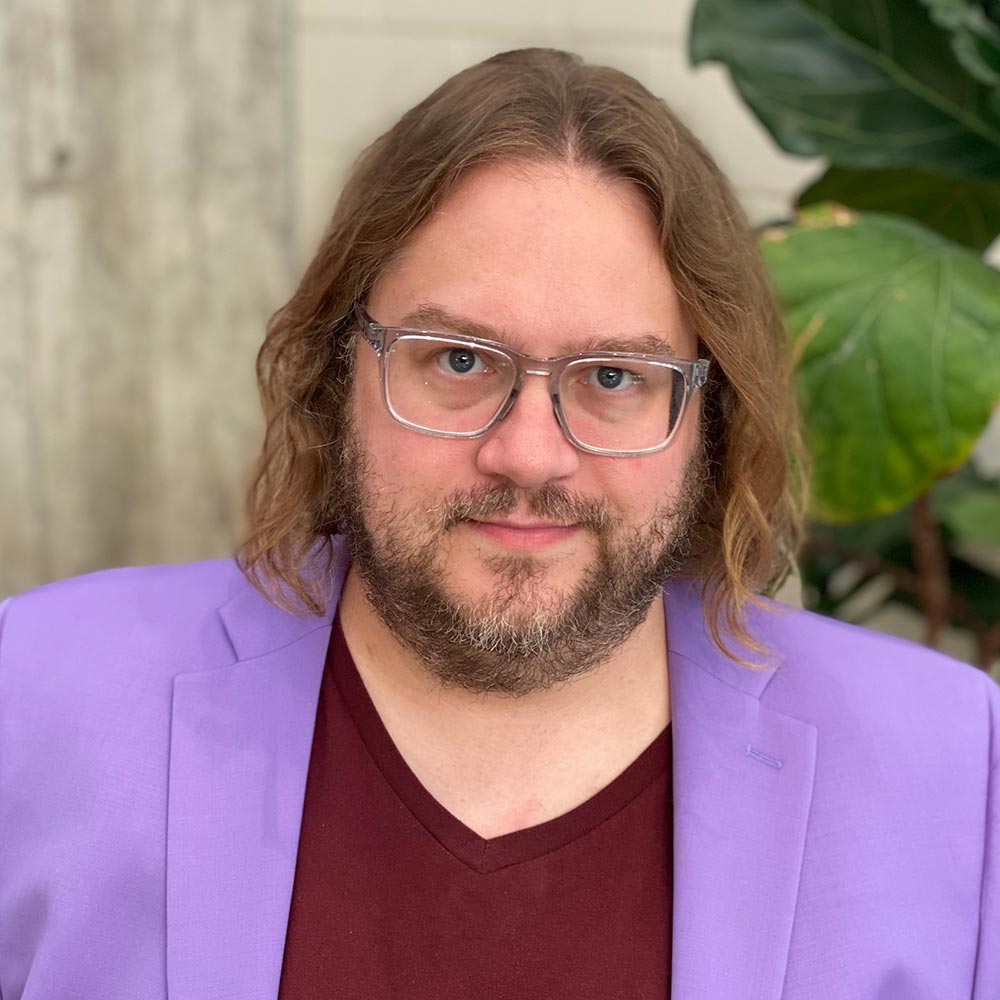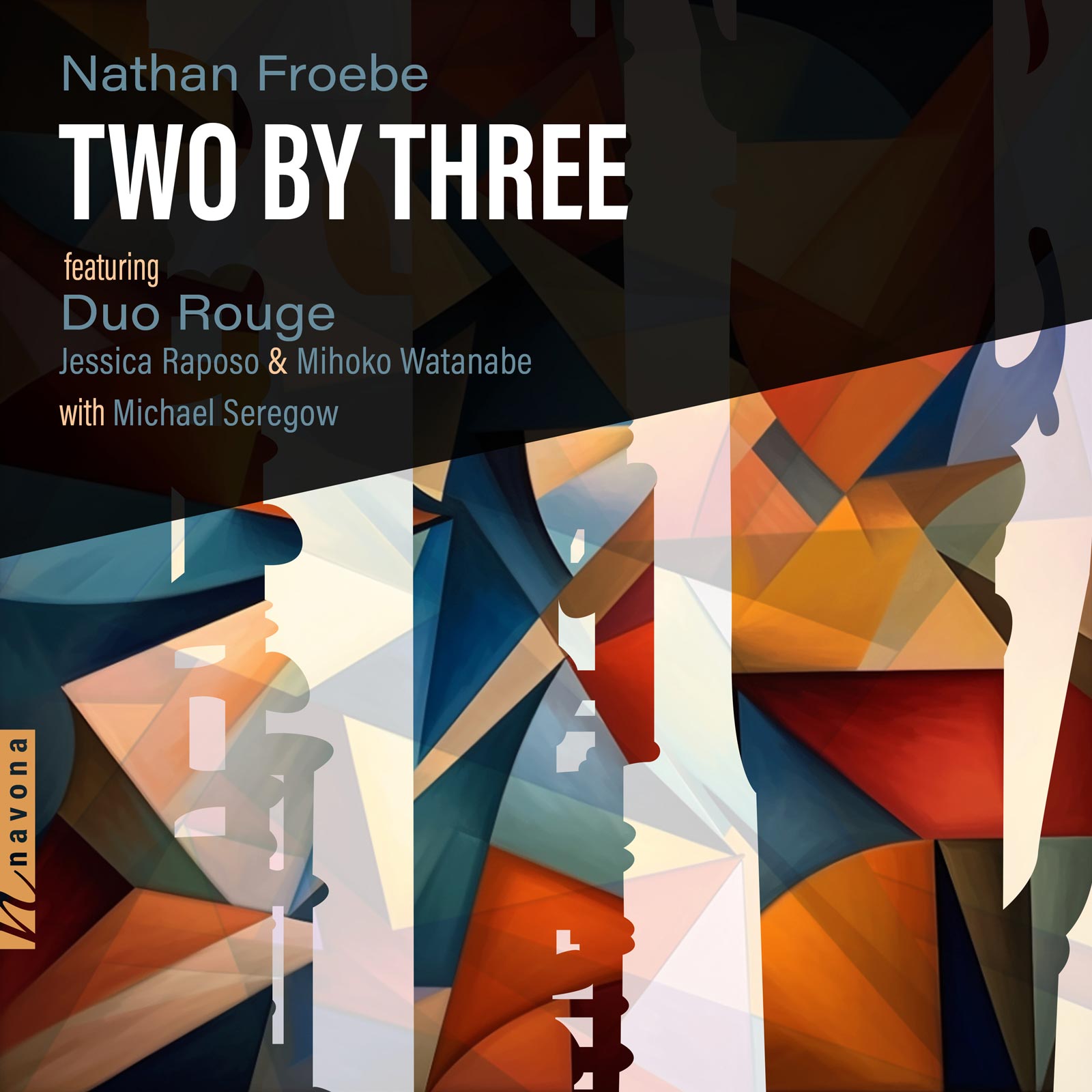
Performed by Duo Rouge and Michael Seregow, Nathan Froebe’s TWO BY THREE is a selection of energetic, freetonal, and programmatic pieces for a myriad of flutes and piano — an exuberant and ruminative release that sweeps through the mind like a fresh breeze on a crisp April morning.
Today, Nathan is our featured artist in the “Inside Story,” a blog series exploring the inner workings and personalities of our composers and performers. Read on to learn his motivational mantra for composing and the resonance he found in the smaller lessons learned from his mentors…
What have been the biggest inspirations throughout your musical journey?
My collaborators are really my biggest inspiration. I find myself thinking “Oh, I definitely want to write for them!” And that leads to a discussion about what music would be meaningful for them to perform, and how our visions can intersect. Cultivating the relationship between a composer and performer is paramount to me, as it allows both of us to dive deeper into our work with more vested interest.
What advice would you give to your younger self if given the chance?
I have two pieces of advice. First, slow down and breathe, which I know is at odds with how everything else works. Take the time to carefully craft your music, and don’t just rely on a system for composing. Even a system can be lovingly shaped! Second, never forget that unbridled energy you began with. There is something to be said for any artist in their early stages, where you are untempered by training and willing to try wacky things. Don’t lose that wildness!
What emotions do you hope listeners will experience after hearing your work?
Something I have long seeded into my music was exploring the nuance of smaller emotions. It’s easy to compose for the big emotions, but then I think there isn’t much left to discuss. I want my performers and audience to discuss what they heard, be it the narrative or specific complex emotion that was presented. I set listeners up for that partly by being so gestural in my figures, as that is how I process things best. It allows an entry point where discussion can be had.
How have your influences changed as you’ve grown as a composer?
This one is tricky for me, because part of my brain starts screaming like it’s still in grad school where people are going to “expect” certain answers, and I feel I have never had answers that seemed satisfactory to the people who asked. Aside from that, I think I am more influenced by the people I collaborate with, and my students I teach, than any particular composer or piece of music. I also tend to shy away from listening to more traditional rep so that I can explore underrepresented voices, or voices that are otherwise completely new to me and may not be part of the American canon.
Where and when are you most creative?
I am most creative at night, in my home office/studio, with everyone and everything away from me! (The one exception is my dog, who will snore and compete with the racket I am banging out on the piano.) That answer is only partially accurate though, as it is really more about carving out time and space in a day, balancing that with everyday life. It’s stupid hard to do some days, but it is necessary. Here’s what I tell myself on those hard days: “All the other stuff will be there later. For now, only Nathan the Composer is here, and that’s all that needs to exist.”
What musical mentor had the greatest impact on your artistic journey? Is there any wisdom they’ve imparted that still resonates today?
What I have experienced with my mentors, and I now notice myself as a teacher, was that it often wasn’t the big idea lessons that were imparted having the biggest impact, but more of the smaller, simpler statements. For example, Laura Schwendinger once looked at a passage of mine and very casually said “Hmm, that’s not Nathan’s best counterpoint,” and just rolled on to the next item. I’ve paid incredible amounts of attention to my counterpoint since then! As for a statement that still resonates today, Tim Rolls once told me that at the end of the day, it was my name in the top corner of the music, and I needed to be sure I was proud of that with whatever music was under it. There are numerous other mentors I have had, and each of them has imparted some small wisdom, often with innocuous statements, and I find a lot of resonance in those small moments.

Nathan Froebe (b.1983) is a composer, conductor, and music educator. Having written for band, chorus, orchestra, chamber settings, and electronic media, his works have been performed both nationally and internationally, and frequently appear as favorites in the Midwest. Additionally, his works have been featured at a number of festivals and conferences, including the North American Saxophone Alliance, the International Tuba-Euphonium Association, the National Flute Association, the International Trombone Festival, and the Society of Composers, Inc. Froebe’s works often focus on narrative design and gestural presentation, utilizing a harmonic palette that ranges from thorny chromaticism to exuberant lyricism.

